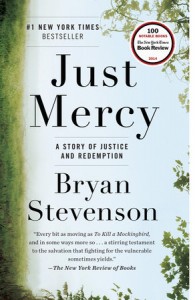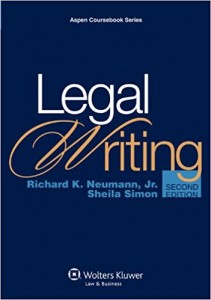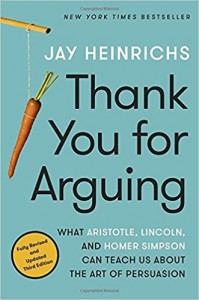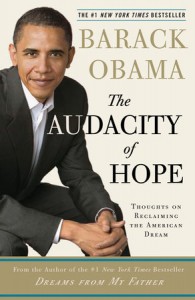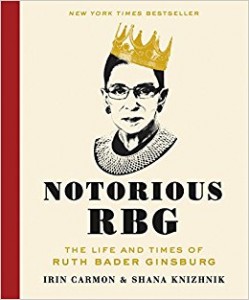5 Books Any Future Lawyer Should Read
Reading is one of the most powerful tools a student has in his or her study arsenal. It has been widely proven that regular reading improves one’s mental stimulation, memory, vocabulary, and analytical thinking skills, all while reducing stress and providing an opportunity to focus. For that reason, many of our Kaplan instructors encourage their students to relax and read a good book to supplement their test prep studies. To take it one step further, students can turn to books relevant to their future fields. We asked our LSAT experts and faculty what books they recommend to future lawyers. Here’s what they had to say.
1. Just Mercy: A Story of Justice and Redemption
Jyoti Jeerage, Senior Director of Faculty Management, recommends “Just Mercy” by Bryan Stevenson. “It’s a fascinating and troubling look at our justice system through the examination of several clients/cases. Stevenson also has a great TED talk on the subject!”
From the Author’s Website
A powerful true story about the potential for mercy to redeem us, and a clarion call to fix our broken system of justice—from one of the most brilliant and influential lawyers of our time.
Bryan Stevenson was a young lawyer when he founded the Equal Justice Initiative, a legal practice dedicated to defending those most desperate and in need: the poor, the wrongly condemned, and women and children trapped in the farthest reaches of our criminal justice system. One of his first cases was that of Walter McMillian, a young man who was sentenced to die for a notorious murder he insisted he didn’t commit. The case drew Bryan into a tangle of conspiracy, political machinations, and legal brinksmanship—and transformed his understanding of mercy and justice forever.
“Just Mercy” is at once an unforgettable account of an idealistic, gifted young lawyer’s coming of age, a moving window into the lives of those he has defended, and an inspiring argument for compassion in the pursuit of justice.
2. Legal Writing
Kaplan’s Director of Faculty Recruitment, John Clark, recommends this classic law school text: “Legal Writing” by Richard Neumann and Sheila Simon. “It’s a personal favorite, and Sheila Simon is a former law prof of mine and former Lieutenant Governor of Illinois. It’s fun, breezy, and astute. Still reference it today for writing of all kinds.”
Amazon’s Description
From Richard K. Neumann, Jr., and Sheila J. Simon;both widely respected for their contributions to legal writing;comes the Second Edition of Legal Writing, a student-friendly text that provides concise yet complete coverage of office memos, motion memos, and appellate briefs. An informal writing style coaches students through the process of writing and the use of policy and storytelling to craft an argument. Each chapter provides exercises and checklists for practice and review.
Legal Writing continues to offer:
- succinct explanations that don’t sacrifice coverage
- step-by-step guidance through the process of writing
- manageably short chapters that focus on essential skills
- focused treatments of office memos, motion memos, and appellate briefs
- strong coverage of the process of writing, the use of policy, and storytelling in fact statements
- clear instruction for how to use the CREAC formula
3. Thank You for Arguing: What Aristotle, Lincoln, and Homer Simpson Can Teach Us About the Art of Persuasion
“Thank You for Arguing” by Jay Heinrichs is Senior Manager of Live Online Events, Ged Helm‘s recommendation. “This book is an incredibly accessible and – I daresay – funny survey of rhetoric. A fantastic resource for anyone who wants to be persuasive; any pre-law or pre-MBA should check it out of their library.”
Amazon’s Description
“Thank You for Arguing” is your master class in the art of persuasion, taught by professors ranging from Bart Simpson to Winston Churchill. The time-tested secrets the book discloses include Cicero’s three-step strategy for moving an audience to actionÑas well as Honest Abe’s Shameless Trick of lowering an audience’s expectations by pretending to be unpolished. But it’s also replete with contemporary techniques such as politicians’ use of “code” language to appeal to specific groups and an eye-opening assortment of popular-culture dodges, including:
The Eddie Haskell Ploy
Eminem’s Rules of Decorum
The Belushi Paradigm
Stalin’s Timing Secret
The Yoda Technique
Whether you’re an inveterate lover of language books or just want to win a lot more anger-free arguments on the page, at the podium, or over a beer, “Thank You for Arguing” is for you. Written by one of today’s most popular online language mavens, it’s warm, witty, erudite, and truly enlightening. It not only teaches you how to recognize a paralipsis and a chiasmus when you hear them, but also how to wield such handy and persuasive weapons the next time you really, really want to get your own way.
4. The Audacity of Hope: Thoughts on Reclaiming the American Dream
“The Audacity of Hope” by Barack Obama comes recommended by Daniel Helm, LSAT Instructor. “Written by a compelling writer from his experience with the law and his journey through the political system, and ‘Audacity of Hope’ gives a pragmatic perspective on the intersection of our laws and policy in government today.”
Amazon’s Description
The Audacity of Hope is Barack Obama’s call for a new kind of politics a politics that builds upon those shared understandings that pull us together as Americans. Lucid in his vision of America’s place in the world, refreshingly candid about his family life and his time in the Senate, Obama here sets out his political convictions and inspires us to trust in the dogged optimism that has long defined us and that is our best hope going forward.
5. Notorious RBG: The Life and Times of Ruth Bader Ginsburg
Erin Englemann, LSAT Instructor, recommends “Notorious RBG” by Irin Carmon and Shana Knizhnik. “This book is not only a fun and interesting biography of Justice Ginsburg, but also a great way to learn about landmark supreme court cases for human right and gender equality.”
Amazon’s Description
Supreme Court Justice Ruth Bader Ginsburg never asked for fame—she has only tried to make the world a little better and a little freer.
But nearly a half-century into her career, something funny happened to the octogenarian: she won the internet. Across America, people who weren’t even born when Ginsburg first made her name as a feminist pioneer are tattooing themselves with her face, setting her famously searing dissents to music, and making viral videos in tribute.
“Notorious RBG”, inspired by the Tumblr that amused the Justice herself and brought to you by its founder and an award-winning feminist journalist, is more than just a love letter. It draws on intimate access to Ginsburg’s family members, close friends, colleagues, and clerks, as well an interview with the Justice herself. An original hybrid of reported narrative, annotated dissents, rare archival photos and documents, and illustrations, the book tells a never-before-told story of an unusual and transformative woman who transcends generational divides. As the country struggles with the unfinished business of gender equality and civil rights, Ginsburg stands as a testament to how far we can come with a little chutzpah.

